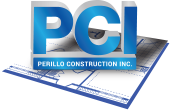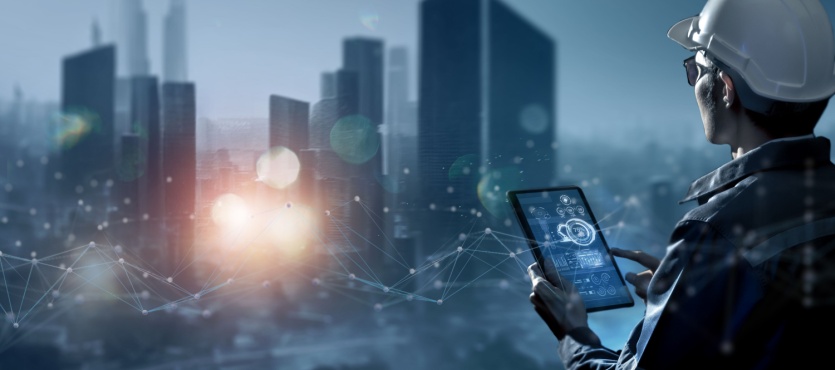The integration of smart building technology is transforming commercial real estate, offering enhanced efficiency, sustainability, and tenant satisfaction. With the increasing demand for energy-efficient, automated, and responsive spaces, businesses are leveraging interconnected systems to improve operations and reduce costs. From real-time data analytics to AI-driven automation, smart buildings are redefining the future of commercial construction. Today we’ll be exploring the impact of smart building technology on energy management, tenant experience, property value, and overall operational efficiency.
Enhanced Energy Efficiency and Sustainability
Smart buildings employ advanced technologies such as the Internet of Things (IoT) sensors and automated systems to optimize energy consumption. These technologies enable real-time adjustments to lighting, HVAC, and other utilities based on occupancy and usage patterns, significantly reducing energy waste. Automated climate control systems can detect temperature fluctuations and adjust accordingly, ensuring a comfortable environment while minimizing unnecessary energy expenditure.
By incorporating sustainable building materials and energy-efficient infrastructure, smart buildings also help reduce carbon footprints and comply with modern environmental regulations. Many commercial properties are now integrating solar panels, energy storage systems, and automated shading solutions to further enhance sustainability efforts. The combination of these features not only reduces operational costs but also aligns with global sustainability initiatives, making commercial spaces more attractive to eco-conscious tenants and investors.
Improved Tenant Experience and Satisfaction
The modern workforce and retail consumers expect convenience, comfort, and efficiency in their environments. Smart building technology enhances tenant experience by providing a seamless, connected, and personalized workspace. Automated access control, smart lighting, and AI-driven air quality monitoring contribute to healthier and more adaptable environments.
For office spaces, smart systems can personalize settings such as lighting and temperature based on user preferences, leading to increased productivity and employee satisfaction. Retail environments benefit from digital signage, real-time inventory tracking, and smart security systems that create a more engaging and secure shopping experience.
Furthermore, predictive maintenance powered by AI helps prevent unexpected breakdowns of essential systems, ensuring that tenants and customers experience minimal disruptions. When building managers proactively address maintenance needs, they improve tenant retention and reduce long-term repair costs.
Data-Driven Decision Making
Smart buildings provide a wealth of data that can transform commercial property management. IoT-enabled sensors collect information on energy usage, occupancy rates, air quality, and security, allowing property managers to make informed decisions about building operations. By analyzing patterns and trends, businesses can optimize space utilization, improve safety protocols, and reduce operational expenses.
For example, smart parking systems can direct employees and visitors to available spaces, reducing congestion and frustration. In large commercial complexes, AI-driven monitoring systems can detect inefficiencies and suggest improvements in energy consumption, space allocation, and security measures. With access to real-time data, property owners can implement proactive strategies that enhance overall efficiency and cost-effectiveness.
Increased Property Value and Market Competitiveness
Investing in smart building technology enhances property value and provides a competitive edge in the commercial real estate market. Properties equipped with intelligent automation systems, energy-efficient designs, and enhanced security features command higher rental rates and attract premium tenants.
As businesses prioritize employee well-being, sustainability, and operational efficiency, they are more likely to choose commercial spaces that integrate modern technology. Smart buildings not only offer immediate benefits in terms of convenience and cost savings but also position property owners for long-term success in an evolving market. Future-proofing commercial spaces through technology-driven design ensures that buildings remain desirable, adaptable, and compliant with evolving industry standards.
The Future of Commercial Spaces
The integration of smart building technology is revolutionizing commercial spaces by enhancing energy efficiency, improving tenant experiences, enabling data-driven management, and increasing property values. As these technologies continue to advance, their adoption will be crucial for property owners and managers looking to stay competitive in an ever-changing landscape.
For businesses looking to incorporate smart technology into their commercial properties, working with experienced professionals ensures a seamless transition. Perillo Construction specializes in designing and implementing cutting-edge solutions tailored to modern business needs. To learn more, visit Perillo Construction’s Contact page.

